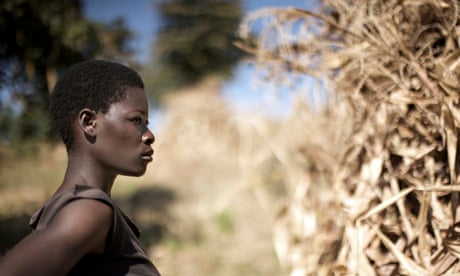Women are the backbone of the rural economy in developing countries and are responsible for 60-80% of food production. They also tend to be the most knowledgeable about crop varieties.
However, they face many challenges that can preclude them from independently owning or managing land and other assets. In many households men control the production and marketing of crops as well as household finances. The UN Food and Agriculture Organization (FAO) says that if women had the same access to these resources as men they could increase agricultural yields by 20-30%, enough to lift between 100 and 150 million people out of hunger.
Our report, Women's empowerment pathways: roadblocks and successes found we need to consider the following points.
Context-specific action plans
In order to empower women economically, the underlying causes of income inequalities must be addressed. Due to the immense variation between culture, religion, and infrastructure which can exist even in areas only a few miles apart, strategies to empower women farmers cannot be one size fits all. Implementation must be informed by country-level, context and culturally-specific assessments to determine the needs of women farmers on a community, regional and country level in order to tailor approaches which will address underlying causes of inequality while ensuring women's wellbeing. This should be informed by a broader gender strategy which establishes long-term goals and guides the intervention.
Targeting women farmers
Targeting women farmers can be challenging, because they may not be active in farmers' organisations, and they often produce crops for household consumption rather than for sale. Additionally, women farmers take on different and often overlapping roles – contributing their labour as unpaid family workers, taking on farm work as casual agricultural labourers and sometimes as the principal producers of crops. Women in the different roles will have different needs and interests and it is important to target support accordingly.
Equipment and capacity development
Labour and time-saving technologies and practices that contribute to reducing women's workload and save them time are an important aspect to address if market development programmes are to succeed in empowering women, both socially and economically. Women also need assistance to develop the capacity necessary in order to increase their incomes. For this, a vital first step is to provide them with training as well as agricultural inputs and credit so that they can produce more, aggregate their crops, and market them collectively. However, giving women farmers the tools to produce more and market their crops does not guarantee that they will be able to do so or benefit economically from their work.
Inclusion of men
Effective gender sensitisation efforts incorporate the needs of communities, responding to the opportunities, challenges, and recommendations identified by country- and region-specific assessments. One effective method has been to ensure the inclusion of both men and women during gender sensitisation, in order to acquire the buy-in of the most influential members of communities, such as religious and customary leaders, who are generally male. Within P4P, this has often been achieved by stressing the economic gains for households and communities which embrace gender equality. In many contexts, these methods have assisted men to understand that women's empowerment does not mean men's disempowerment. In the same way, male authorities and community leaders have played vital roles in supporting the increased agricultural production and economic gains of women farmers under the P4P pilot.
Be aware of the risks
By overlooking generations-old cultural norms, initiatives which seek to empower women can cause social isolation and risk the safety of participants. Malawi is one example where some women farmers reported forceful resistance at household level, as the male heads of household resisted their wives' efforts to independently earn and control income. This highlights the importance of carefully designing culturally and context appropriate interventions in order to ensure the safety of women participants. Household negotiation is a powerful tool which can assist women to strategically gain voice and influence, while simultaneously reducing pressure within their households.
Tools for household negotiation
A household negotiation approach emphasises the inclusive management of household resources, assisting women and men to improve their collaboration at a household level. A woman farmer and field monitor named Mazouma, from Burkina Faso, says that in her community, many women are now able make family decisions in collaboration with their husbands, making it easier to manage their income. She also says that this has led to the increased inclusion of women in decision-making and planning in their farmers' organisations and communities.
Any assessment of gender achievements must go beyond counting the number of women vs men involved. Nuanced examinations will inform new methods to more effectively facilitate the empowerment of women farmers. One such lesson learned for World Food Programme was the importance of emphasising the procurement of traditional "women's crops", such as niébé, in order to increase women's participation to sales.
Ken Davies is the global coordinator of the Purchase for Progress pilot programme at the World Food Programme. Follow @WFP_P4P on Twitter.
Read more stories like this:
Move over rice, baobab and spider plant could be the new staple crops
Feeding Africa: why biotechnology sceptics are wrong to dismiss GM
Stop selling off African land - invest in farmers instead
Join the community of global development professionals and experts. Become a GDPN member to get more stories like this direct to your inbox

Comments (…)
Sign in or create your Guardian account to join the discussion